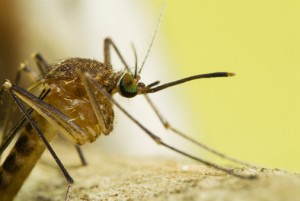The West Nile Virus (WNV) is an arbovirus that was first identified in the United States in 1999 and is endemic in much of the world. Although there is no specific treatment for infection or vaccine for prevention, most cases of WNV are asymptomatic and resolve on their own. One in five WNV-infected persons will develop a fever with other symptoms, but 1% of infections can cause permanent and sometimes fatal neurological damage. As of September 22, 2015, 877 cases of WNV infections in humans have been reported to the CDC from 45 states and the District of Columbia. In addition to exposure by infected mosquitos, WNV can be transmitted by transfusions, organ transplantations, and mother-to-child transmission. To reduce the risk of transfusion-transmitted infections, blood collection agencies have been screening all donations for WNV since 2003. Infected individuals should not donate blood for 120 days.
Reference

